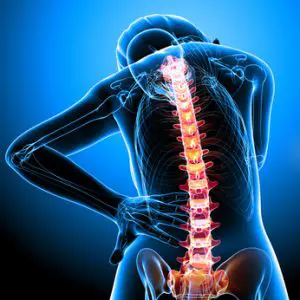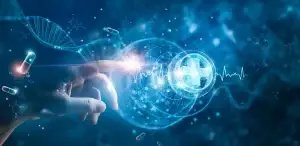Car accidents can be shocking and disorienting, and while you might feel lucky to walk away without pain, that doesn’t mean you’re injury-free. Many serious injuries don’t show symptoms right away, which is why seeing a doctor as soon as possible after an accident is crucial.
🚨 Fact: Research shows that over 50% of car accident injuries don’t appear immediately and can take hours or even days to develop. (Source: National Highway Traffic Safety Administration (NHTSA))
Here’s why seeking medical attention after a car accident is essential, even if you feel fine.
1. Hidden Injuries Can Take Hours or Days to Appear
Some injuries don’t cause immediate pain, but they can worsen over time if left untreated. A doctor can detect hidden injuries early, preventing serious complications later on.
Common Injuries That May Not Show Symptoms Right Away:
🚗 Whiplash
✔ Occurs when your neck is violently jerked forward and backward, causing strain on muscles and ligaments.
✔ Symptoms may take 24-48 hours to appear, including neck pain, stiffness, headaches, and dizziness.
🚗 Concussions (Mild Traumatic Brain Injury – TBI)
✔ A blow to the head or sudden jolt can cause brain injury.
✔ Symptoms can include headaches, confusion, dizziness, nausea, and difficulty concentrating—sometimes delayed by days or weeks.
🚗 Internal Bleeding
✔ Internal bleeding doesn’t always have visible symptoms but can be life-threatening.
✔ Signs include abdominal pain, swelling, dizziness, fainting, and deep purple bruising.
🚗 Soft Tissue Injuries
✔ Damage to muscles, ligaments, and tendons can cause swelling and reduced mobility over time.
✔ Pain may not appear for several days as inflammation increases.
🚗 Herniated Discs
✔ Spinal disc damage can happen due to sudden impact.
✔ Symptoms include back pain, numbness, tingling, or weakness—which may not appear until days after the accident.
🚗 Internal Organ Damage
✔ Injuries to the liver, spleen, or kidneys might not be immediately noticeable.
✔ Signs of shock (rapid pulse, pale skin) and abdominal tenderness could indicate internal trauma.
🚗 Fractures & Hairline Cracks
✔ Some bone fractures don’t cause immediate pain but worsen over time.
✔ Symptoms include localized swelling, bruising, and movement difficulty.
🚗 PTSD & Psychological Trauma
✔ Emotional injuries like post-traumatic stress disorder (PTSD) can develop after a car accident.
✔ Symptoms include flashbacks, nightmares, anxiety, depression, or difficulty sleeping.
📢 Key Takeaway: Just because you don’t feel pain immediately doesn’t mean you’re not injured. Many car accident injuries have delayed symptoms, so getting checked by a doctor is crucial.
2. Adrenaline Can Mask Pain
After an accident, your body releases adrenaline and endorphins, which act as natural painkillers. This can prevent you from feeling pain right away, even if you have a serious injury.
✔ Once the adrenaline wears off, you may start feeling stiffness, soreness, headaches, or dizziness.
✔ Delaying medical care can make injuries worse and prolong recovery time.
Solution? See a doctor right away, even if you feel “fine.” Early diagnosis prevents minor injuries from turning into major medical problems.
Many injuries, like whiplash, internal bleeding, or concussions, may not show symptoms right away. A doctor can detect these hidden injuries early, preventing more severe complications down the line.
3. Medical Records Protect Your Legal Rights
If you plan to file an insurance claim or pursue a personal injury case, having a doctor’s evaluation right after the accident is critical.
✔ Insurance companies may deny claims if there’s no immediate medical record of injuries.
✔ A documented medical visit helps prove the accident caused your injuries, not a pre-existing condition.
✔ If you wait too long to see a doctor, insurers may argue your injuries aren’t serious or accident-related.
🚨 Fact: Some states have strict deadlines for seeking medical care after an accident. For example, in Florida, you must see a doctor within 14 days to qualify for Personal Injury Protection (PIP) benefits.
📢 Key Takeaway: If you plan to file a claim or lawsuit, seeing a doctor ASAP protects your right to compensation for medical bills, lost wages, and pain & suffering.
4. Preventing Long-Term Health Issues
Ignoring even minor injuries can lead to chronic pain and long-term health problems.
✔ Untreated whiplash can lead to permanent neck pain, headaches, and reduced mobility.
✔ Delayed concussions can cause long-term cognitive issues like memory loss and difficulty concentrating.
✔ Ignoring back injuries can result in herniated discs or spinal problems requiring surgery.
🚨 Did You Know? 50% of whiplash patients still experience symptoms one year after their accident if they delay treatment.
Solution? Early medical intervention prevents complications and speeds up recovery.
5. Professional Medical Advice & Treatment Plan
Seeing a doctor isn’t just about diagnosis—it’s about recovery.
✔ Doctors can recommend treatments such as physical therapy, chiropractic care, or pain management.
✔ They provide personalized recovery plans to prevent long-term damage.
✔ They educate you on what to watch for in the days and weeks after the accident.
📢 Key Takeaway: Even if you feel fine, doctors can identify potential issues and provide the best recovery plan for your health.
Conclusion: Don’t Risk Your Health—See a Doctor After a Car Accident
Even if you walk away from an accident feeling okay, you could have hidden injuries that worsen over time.

🚗 Key Takeaways:
✔ Many car accident injuries have delayed symptoms—early detection is critical.
✔ Adrenaline can mask pain, making injuries seem less serious at first.
✔ Medical records are essential for legal and insurance claims.
✔ Ignoring injuries can lead to chronic pain and long-term health problems.
✔ A doctor can provide expert treatment and recovery recommendations.
🔹 Don’t take chances with your health—schedule a check-up with a qualified accident doctor today.
📢 Need a specialist? Find a trusted injury doctor near you for expert evaluation and treatment!


 Since 2012,
Since 2012, 

